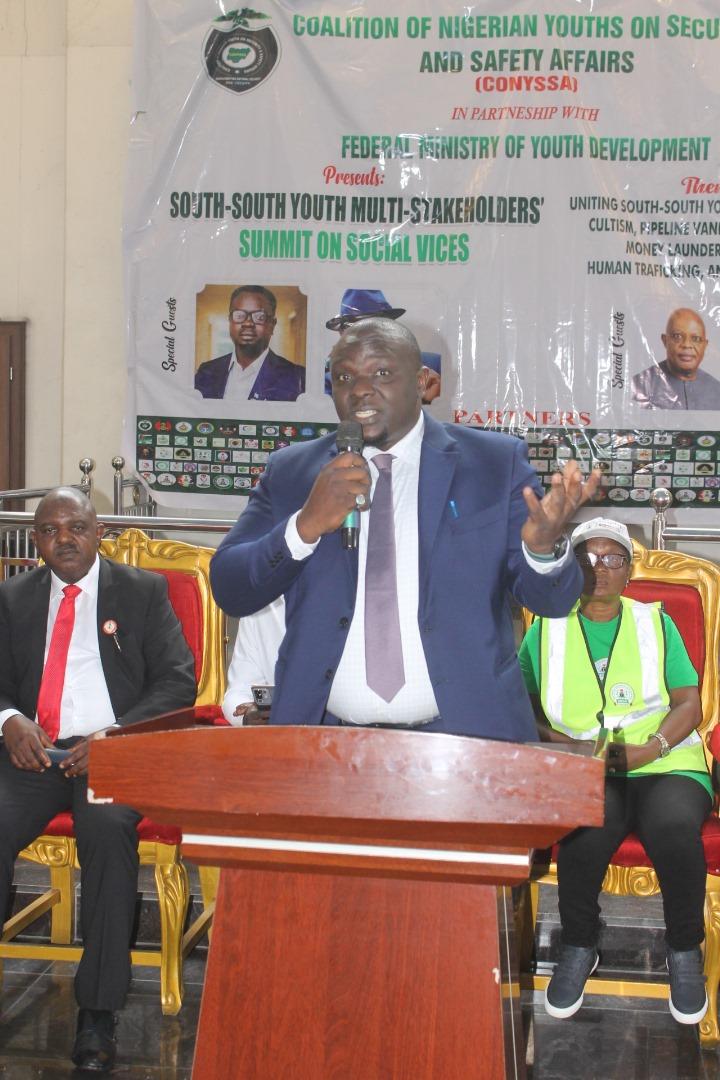Fresh concerns have emerged over the management of the Federal Government’s Student Loan Scheme as both the Federal Ministry of Education and the Independent Corrupt Practices and Other Related Offences Commission (ICPC) have launched separate investigations into alleged unauthorised deductions from institutional fees disbursed by the Nigerian Education Loan Fund (NELFUND).
Education Minister, Dr. Yusuf Sununu Tunji Alausa, described the situation as “very disturbing and extremely concerning,” vowing that any financial malpractice uncovered will be met with stiff sanctions.
The alarm was first raised by the Director-General of the National Orientation Agency (NOA), Lanre Isa-Onilu, who pointed to “untoward activities” in some universities regarding the disbursement of institutional fees. While these concerns were initially dismissed as mere technical glitches, the Ministry is now taking no chances.
According to a statement issued by the Director of Press and Public Relations at the Ministry, Boriowo Folasade, the Minister has summoned an emergency meeting for May 6. Those expected to attend include vice chancellors of affected institutions and NELFUND’s Managing Director, Mr. Akintunde Sawyerr.
The meeting, the statement said, aims to “thoroughly investigate the matter, ensure full accountability, and reaffirm the Ministry’s zero-tolerance policy toward financial malpractice in the education sector.”
The Minister warned: “Unauthorised deductions from student loans not only breach financial ethics but also undermine the very foundation upon which NELFUND was established. If proven true, such actions would constitute a gross violation of public trust and a betrayal of the government’s commitment to equitable access to education.”
To strengthen transparency in the sector, the Ministry revealed that it is partnering with the Athena Centre to launch a compliance-tracking initiative and a countdown webpage to monitor institutional transparency.
Other measures include the introduction of an Annual University Transparency Index, technical assistance for institutions, and a training programme for university and polytechnic bursars and ICT heads on the development of an open-portal initiative.
“As part of our National Education Sector Reform Initiative (NESRI), governance remains the top pillar of our agenda,” the statement added. “We are committed to strengthening transparency, promoting responsible financial conduct, and ensuring that every kobo allocated for student welfare is used appropriately.”
The statement concluded with a firm assurance: “Let me assure Nigerians that this matter will not be swept under the carpet. Anyone found culpable will face appropriate sanctions.”
President Bola Ahmed Tinubu launched the student loan scheme to assist indigent students in gaining access to tertiary education. Since inception, NELFUND has disbursed about N53 billion, paying institutional fees directly into university accounts and providing N20,000 monthly as upkeep for each student beneficiary.
Read also: Students loan: FG exposes tertiary institutions shortchanging students through banks
Meanwhile, the ICPC has confirmed it is carrying out a parallel investigation into alleged financial irregularities in the management of the student loan scheme.
ICPC spokesperson, Debola Bakare, revealed that preliminary findings indicate a significant gap in the financial records associated with the disbursement of the loans.
“Upon receiving the report, the Commission’s Chairman’s Special Task Force immediately swung into action,” the statement said, noting that letters of investigation and invitations were sent to key government stakeholders, including the Director General of the Budget Office, the Accountant-General of the Federation, and senior Central Bank officials.
Bakare added: “Additionally, the Chief Executive Officer and Executive Director of NELFUND were invited to provide documentation and explanations relevant to the case.”
According to ICPC, records show that as of March 19, 2023, NELFUND received a total of N203.8 billion. This includes N10 billion from the Federation Allocation Account Committee (FAAC), N50 billion from the Economic and Financial Crimes Commission (EFCC), and two tranches of N71.9 billion each from the Tertiary Education Trust Fund (TETFund).
Out of this amount, ICPC noted that NELFUND has disbursed about N44.2 billion to 299 institutions, with 293,178 students benefiting from the scheme so far.
In response, NELFUND has strongly denied all allegations of mismanagement, insisting that the reports are misleading and harmful to the integrity of the scheme.
In a statement issued in Abuja by its Director of Strategic Communications, Mrs. Oseyemi Oluwatuyi, NELFUND described the allegations as “entirely false, grossly irresponsible, and deeply damaging to the integrity of an institution established to deliver financial hope to millions of Nigerians.”
“This is a coordinated distortion of facts that undermines public trust, weaponises misinformation, and threatens the credibility of a national intervention still in its infancy,” the statement said.
NELFUND clarified that the scheme officially launched its student loan application portal in 2024 and that all payments are made directly to verified institutions, while upkeep allowances are sent to verified student bank accounts.
“The figures and funding amounts currently being misrepresented in the public are drawn from entirely different education financing interventions predating NELFUND’s operational commencement,” it added. “They bear no relevance to the current student loan scheme and should not be falsely attributed to this institution.”
The Fund also emphasized that it operates a “zero human interface, fully automated loan system that eliminates opportunities for financial misconduct. Every application and disbursement is digitally tracked, time-stamped, and verifiable.”
It reaffirmed its full cooperation with oversight agencies, including the ICPC. “We have complied fully with every request for information and will continue to uphold the highest standards of public accountability,” the statement read.
NELFUND warned that circulating “unverified, context-free, and inflammatory claims” at this stage of implementation could sabotage a nationally significant programme designed to promote access to education and economic empowerment.
“We call on the media, stakeholders, and the public to resist the pull of sensationalism and await verified updates directly from NELFUND,” the statement concluded.
“We remain focused, undeterred, and committed to the transparent delivery of this national mandate. The future of Nigeria’s youth is too important to be hijacked by misinformation.”









